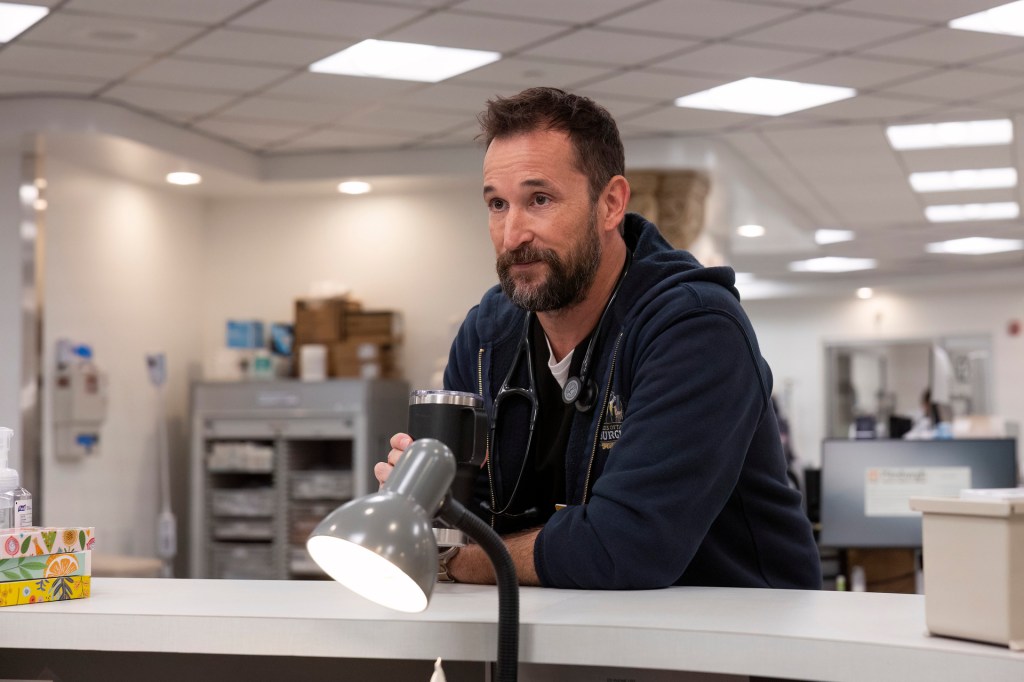The Pitt hopes to take away the stigma of mental health checkups for doctors by having Noah Wyle’s Robby acknowledge that he needs help in the new season, Showrunner R. Scott Gemmill said Thursday.
While participating in an HRTS discussion about the need for more realistic portrayals of U.S. caregivers, Gemmill gave a hint about what to expect from Dr. Michael Robinavitch, the central character in the Emmy-nominated drama. The series from Gemmill, Wyle and John Wells kicked off in January by focusing on Robby’s inability to cope with the death of his mentor during the pandemic.
“Part of … season 2 is seeing Dr. Robbie acknowledge that he needs help, that he hasn’t gotten the help he needs, and to encourage his coworkers to seek help to take away that stigma,” said Gemmill. “One of the movements afoot is to make a mental health check sort of mandatory for healthcare workers. And that way, if everyone has to do it, then that takes away the stigma. So doctors who do have a problem or who fall off, whether through addictions, as an example, there are programs that will help them get help and get back to becoming a doctor again.”
Dubbed “Storytelling That Redefines Resilience,” the panel from HRTS and the HRTS foundation shared several stats to bolster the need for more pragmatic stories about caregiving, like how 92 percent of viewers surveyed said realistic work, family and caregiving themes in shows is important, while two out of five adults in the U.S. provide care to another adult.
“One of the comment denominators across all of that is care responsibilities and balancing life and family,” said Lydia Storie, director of culture change for Caring Across Generations. She was joined on the HRTS panel by Nicole Lynn Lewis (Pregnant Girl), who serves as the Founder & CEO of Generation Hope; Galen Vaisman, the SVP of Creative Development at DC Studios; and Brian Lenard, SVP of Current Programming at Warner Bros.
“I think it’s a pathway to relatable storytelling and a way for us to again, find commonality and common humanity and a sense of collective resilience,” continued Storie.
“Resilience is just a fancy word for hope,” added Gemmill. “No matter how bad it is, hopefully, we offer some hope at the end of the day. That’s the core of The Pitt. People come into ER on their worst day. No one wants to be there. Providing the care that the doctors and the nurses and the techs do, you give someone hope. That’s why we come to ER. You hope you are going to get better. To me, resilience is about keeping hope alive as long as possible.”
The post ‘The Pitt’: Dr. Robby Will Acknowledge He Needs Help For His Mental Health In New Season, Says Showrunner R. Scott Gemmill appeared first on Deadline.




